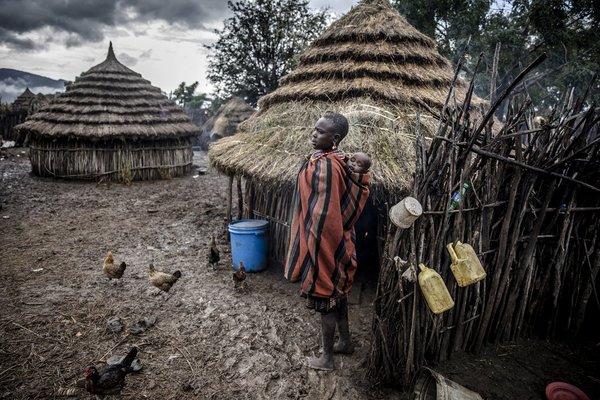- Share this article
- Subscribe to our newsletter
Heavy rains in East Africa
Heavy rains in East Africa have destroyed the homes and fields of tens of thousands of people, according to a World Vision report at the end of May 2020. The impact of the floods is amplified by the fact that people are having to cope not only with the consequences of COVID-19 but also with a second wave of locusts.
In Kenya alone, over 150,000 people have had to leave their villages after torrential downpours. In Rwanda, at least 65 people died after landslides, which also destroyed roads and homes. Lake Victoria water levels are at their highest in over 60 years, and villages on its shores have already been flooded.
The unusually heavy and early rains are also speeding up the emergence of new swarms of locusts. The first wave in February posed a risk to the food supply of hundreds of thousands of people in the region. The newly hatched locusts are significantly more numerous, and the humidity is promoting their development.
“We’re afraid that giant swarms will strip whole areas of food unless far-reaching measures are taken to combat them. Experts believe that we may have to expect a wave of locusts in East Africa in June and July which is 400 times greater,” explains Kathryn Taetzsch, World Vision disaster manager in the region. “Seven million people in southern Sudan are already threatened by hunger. This number will rise and the shortages will become worse. The UN expects that up to 13 million people could be affected by hunger in East Africa in the next few months.”
As in the rest of the region, the lockdown caused by the COVID-19 pandemic in Kenya, Somalia and Ethiopia is hindering effective action against the swarms. Many experts and operational teams have been unable to travel to the hotspots of swarm emergence because of the exit restrictions in their countries.
As a result, even the meagre resources of insecticides and aircraft have remained largely unused. The floods in rural regions as a result of the heavy rains in recent days and weeks have also destroyed several roads and bridges. This can also have an impact the prompt supply of aid, World Vision warns.
(World Vision/ile)
More information (German only) at World Vision website





Add a comment
Be the First to Comment